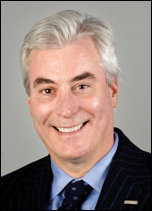Hello, my name is Greg and I was a Buffalo Hunter for more than 35 years.
In economic development parlance a “buffalo hunter” is a marketing professional who is only after the “big game” — the hundred-million-dollars-in- capital-investment/1,000-new-jobs economic development projects that are rare and far between.
Over 35 years I had my share of wins, but could my time and the funding provided have been better used in ways that generated more return on the resources provided?
For instance, could retention of existing business in the region been better focused and more resources provided? Probably, as traditionally only a small percentage of funds are devoted to “keeping the existing clients happy.”
Could new business formation been more fully explored and coordinated in the metro Richmond area? Absolutely. There were and still are several great accelerators, business incubators and venture capital entities concentrating on this effort, but most of the work is done in silos.
So, when did I see the light, find the new economic development “religion,” and start to propagate it? Sadly, late in my economic development career. It wasn’t until I retired and had the time to explore other economic development job and capital-investment options without the pressures of board oversight and investors to satisfy.
Let me be clear, an ideal economic development program needs to attract new business to a community. But like a three legged stool, it also needs to retain existing businesses and help create new business formation.
So where is my “burning bush?” I believe the greatest economic development value add is assisting the community’s existing businesses to export their goods and services beyond the U.S. borders.
When I was hired as a fellow in Virginia Commonwealth University’s Wilder School in the summer of 2015, my charge through the Center of Urban and Regional Analysis (CURA) was to work with all the partners, allies, local governments, chambers of commerce, state and federal agencies that had a stake in promoting exports, to create a Metropolitan Richmond Export Initiative (MREI).
The rationale was compelling. The share of foreign direct investment entering the U.S. was in steady decline, falling from 45% in 1984, to just 12% in 2012. Eighty-one percent of the potential demand for American products comes from outside the U.S. Finally, as a region, we were under performing compared to the national Metro export average.
CURA, working with the Brookings Global Cities Initiative, identified five other regions we benchmarked ourselves against. We received funding to begin the planning of the MREI through a grant from J P Morgan Chase (JPMC) in the summer of 2015. CURA then surveyed local businesses, interviewed local stakeholders, undertook focus groups in order to create a draft plan or “Straw Man” for all the stakeholders to critique and provide feedback on.
This process proceeded throughout the fall into the winter and in March 2016 we rolled out our third community-wide export initiative meeting. In that meeting we unveiled the MREI Goal and Metrics for metro-wide comments and feedback.
The goal is simple but aggressive: Increase export success of small and medium enterprises by 40% by 2020.
We will measure success through the number of exporting companies that enter new foreign markets, companies that export for the first time, and product innovations and patents by firms in the metro area.
Implementation of the MREI kicked off September 8th and the region’s two economic development partners are now co-leads as a series of new export training courses are being designed, grants to businesses formulated, a new web site to be created and MREI marketing materials to be prepared.
The MREI was the first in Virginia to be created and could be a model for other regions to follow as they look for longer term more sustainable models for economic development.
To read the MREI document, please look here.
Greg Wingfield, the recently retired president of the Greater Richmond Partnership, is a senior fellow at Virginia Commonwealth University’s Center for Urban and Regional Analysis at the L. Douglas Wilder School of Government and Public Affairs.



